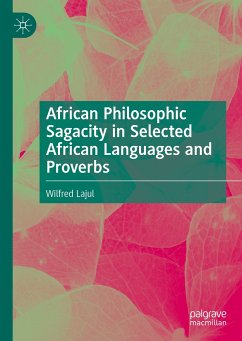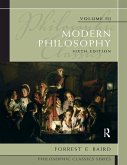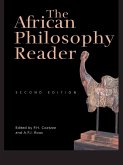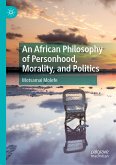This book explores African philosophic sagacity, or wisdom philosophy, as proposed by Odera Oruka in his "Four Trends in Current African Philosophy" (1981), which he later expanded to six trends (1998). Oruka defines philosophic sagacity as wisdom philosophy, or philosophy of the wise men of Africa who are independent, liberal and non-conformist thinkers, and who often deviate from the accepted common norms of their societies. This book takes philosophic sagacity discourse beyond Oruka's definition by encompassing traditional wise sayings and proverbs. It combines individual liberal thinkers and the communal ideas, and cherishes both rational and emotional engagement, offering a broader understanding of African philosophic sagacity. Wilfred Lajul opens the door for new researchers to venture into the study of African languages, wisdom sayings, and proverbs, and helps to unveil the content of this philosophy from the perspective of different African societies.
Wilfred Lajul is Associate Professor of Philosophy at Gulu University, Uganda
Dieser Download kann aus rechtlichen Gründen nur mit Rechnungsadresse in A, B, BG, CY, CZ, D, DK, EW, E, FIN, F, GR, HR, H, IRL, I, LT, L, LR, M, NL, PL, P, R, S, SLO, SK ausgeliefert werden.









